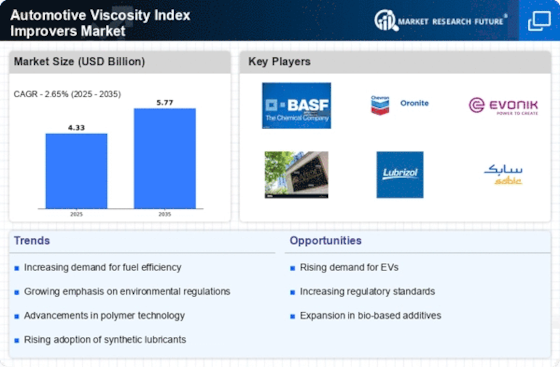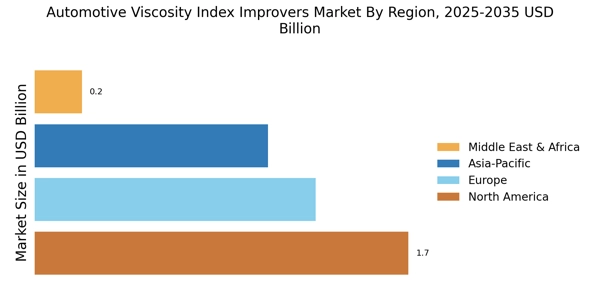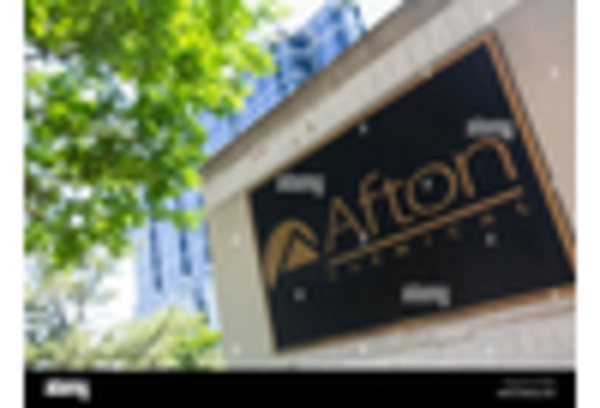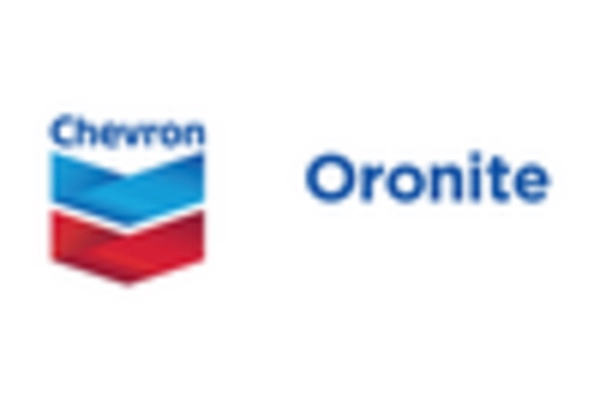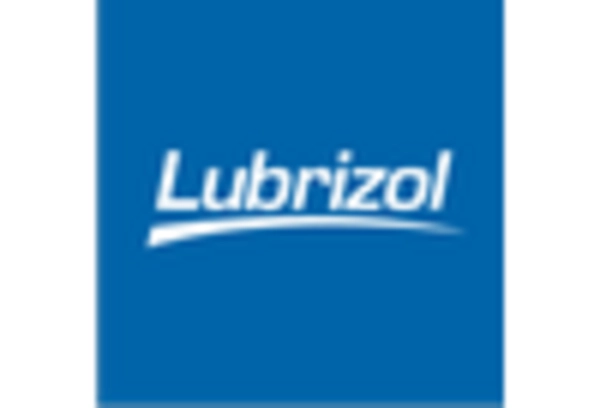Consumer Awareness and Education
Consumer awareness regarding the importance of high-quality lubricants is on the rise, positively impacting the Automotive Viscosity Index Improvers Market. As consumers become more informed about the benefits of using advanced lubricants, including those enhanced with viscosity index improvers, there is a growing preference for premium products. This shift in consumer behavior is prompting manufacturers to emphasize the performance advantages of their products, thereby driving demand for viscosity index improvers. Educational initiatives and marketing campaigns aimed at highlighting the role of these additives in improving engine longevity and efficiency are likely to further bolster market growth. As consumers increasingly seek out products that offer superior performance, the market for viscosity index improvers is expected to expand.
Stringent Environmental Regulations
The Automotive Viscosity Index Improvers Market is significantly influenced by the implementation of stringent environmental regulations aimed at reducing emissions and promoting sustainability. Regulatory bodies are increasingly mandating lower emissions from vehicles, which necessitates the use of high-quality lubricants that can perform under diverse operating conditions. Viscosity index improvers are essential in formulating lubricants that meet these regulatory standards while ensuring optimal engine performance. As a result, manufacturers are compelled to invest in research and development to create compliant products that align with environmental goals. This regulatory landscape is likely to foster innovation within the industry, as companies strive to develop eco-friendly viscosity index improvers that do not compromise on performance.
Increasing Demand for Fuel Efficiency
The Automotive Viscosity Index Improvers Market is experiencing a notable surge in demand driven by the global emphasis on fuel efficiency. As consumers and manufacturers alike prioritize reducing fuel consumption, the need for high-performance lubricants that enhance engine efficiency becomes paramount. Viscosity index improvers play a crucial role in maintaining optimal viscosity across varying temperatures, thereby improving fuel economy. According to recent data, the automotive sector is projected to witness a compound annual growth rate of approximately 4% in the coming years, further propelling the demand for these additives. This trend indicates a shift towards more sustainable automotive solutions, where viscosity index improvers are integral to achieving desired performance metrics.
Growth of Electric and Hybrid Vehicles
The rise of electric and hybrid vehicles is reshaping the Automotive Viscosity Index Improvers Market, presenting both challenges and opportunities. While these vehicles typically require different lubrication solutions compared to traditional internal combustion engines, the demand for high-performance lubricants remains. Viscosity index improvers are still relevant in the context of hybrid vehicles, which often utilize conventional lubricants in their internal combustion components. As the market for electric and hybrid vehicles expands, manufacturers are likely to adapt their formulations to cater to the unique requirements of these vehicles, ensuring that viscosity index improvers continue to play a vital role in enhancing performance and efficiency.
Technological Innovations in Lubricants
Technological advancements within the Automotive Viscosity Index Improvers Market are reshaping the landscape of lubricant formulations. Innovations in polymer chemistry and additive technologies are leading to the development of more efficient viscosity index improvers that offer superior performance characteristics. These advancements not only enhance the thermal stability and shear resistance of lubricants but also contribute to longer oil change intervals, thereby reducing maintenance costs for consumers. The market is witnessing a shift towards synthetic and semi-synthetic lubricants, which are increasingly incorporating advanced viscosity index improvers. This trend is expected to drive market growth, as manufacturers seek to meet the evolving demands of modern engines that operate under more extreme conditions.


